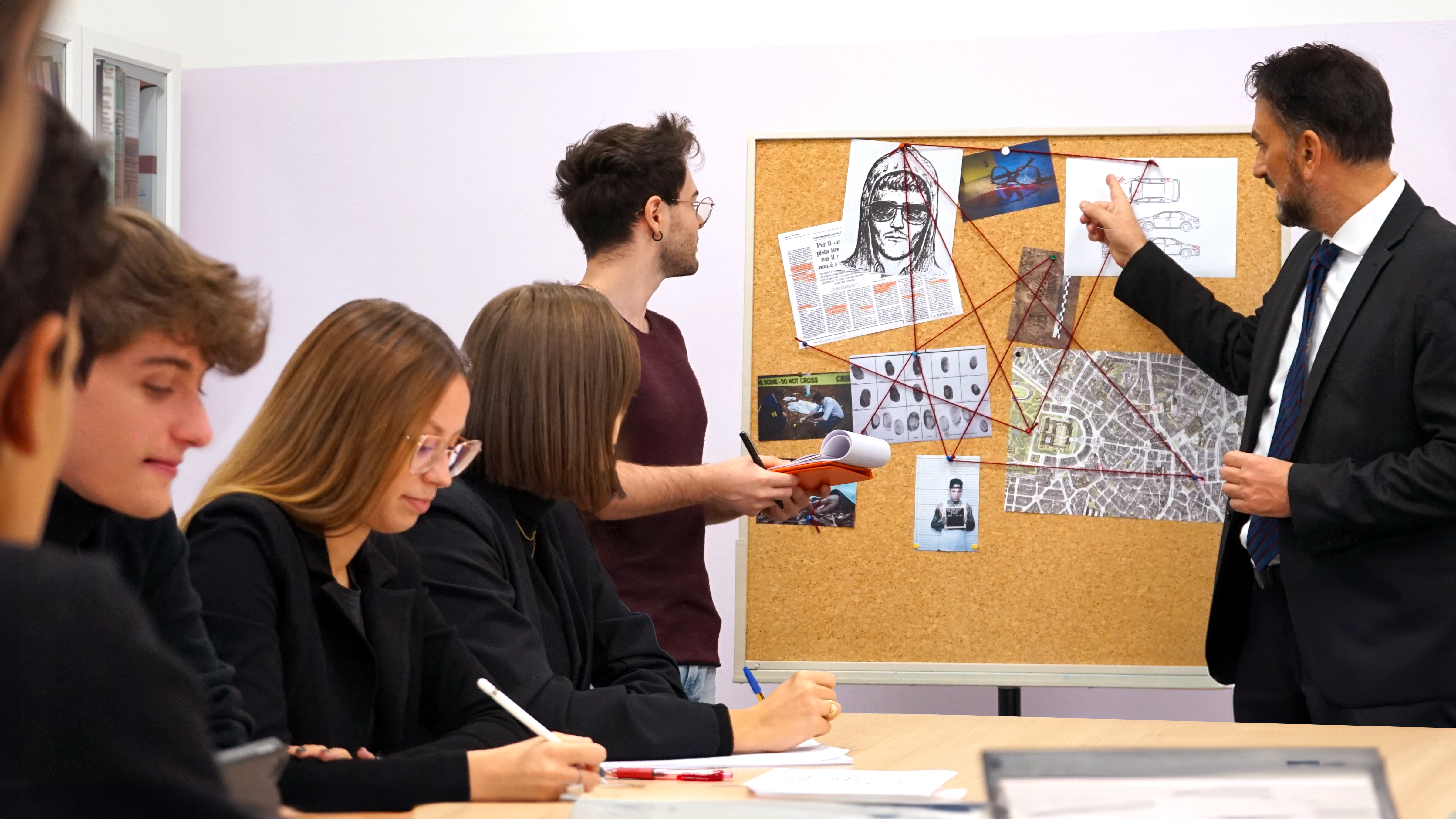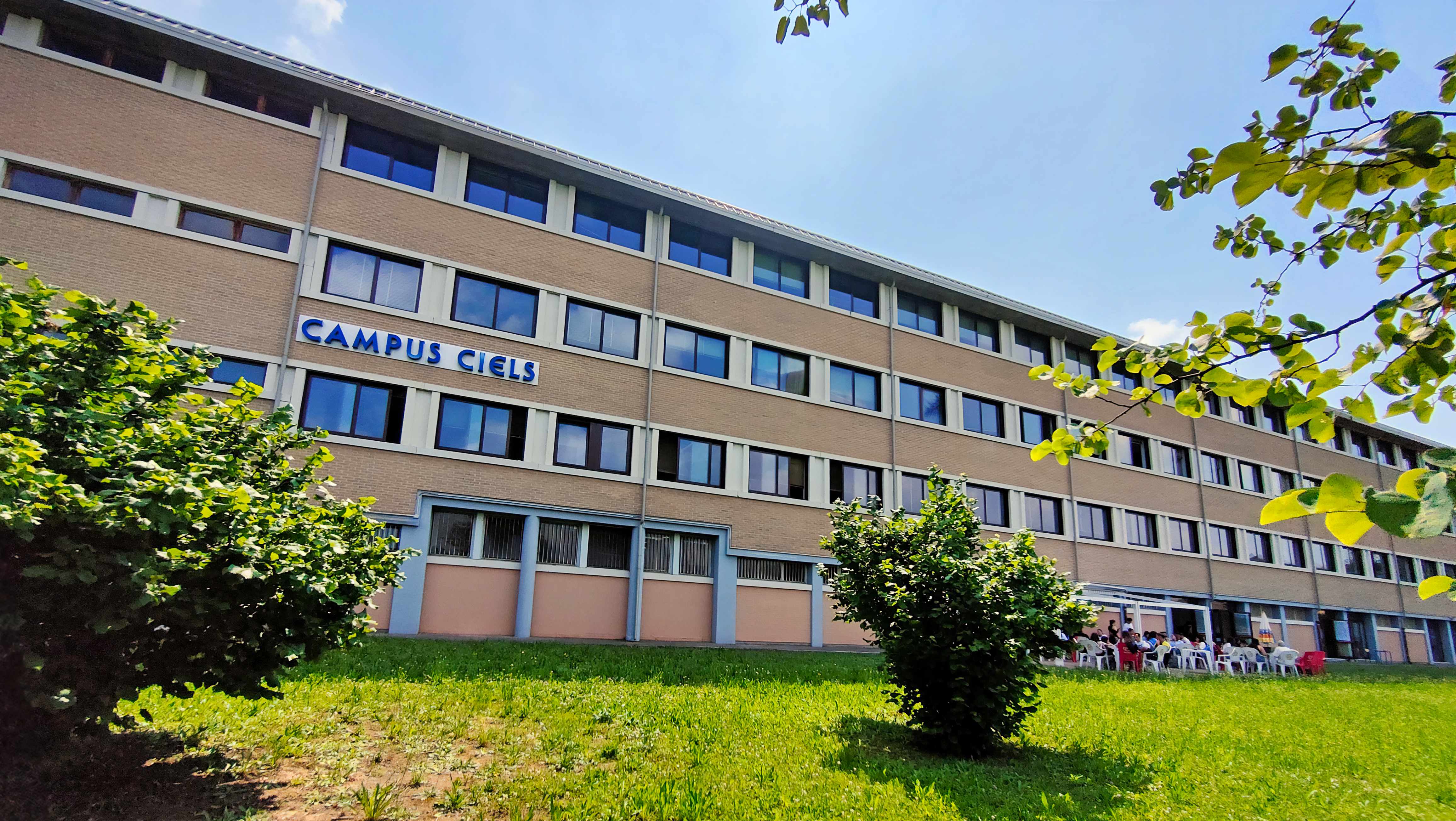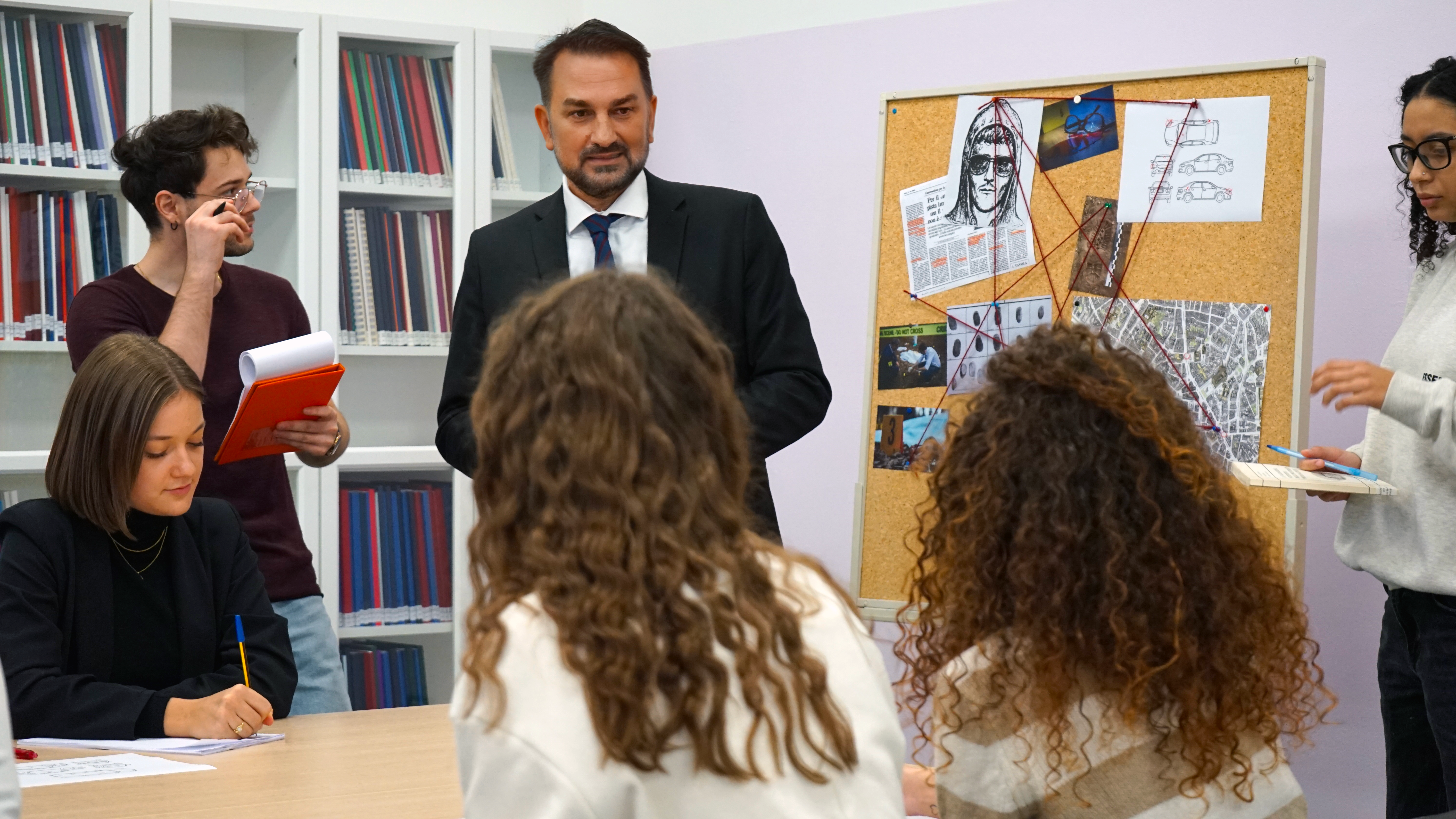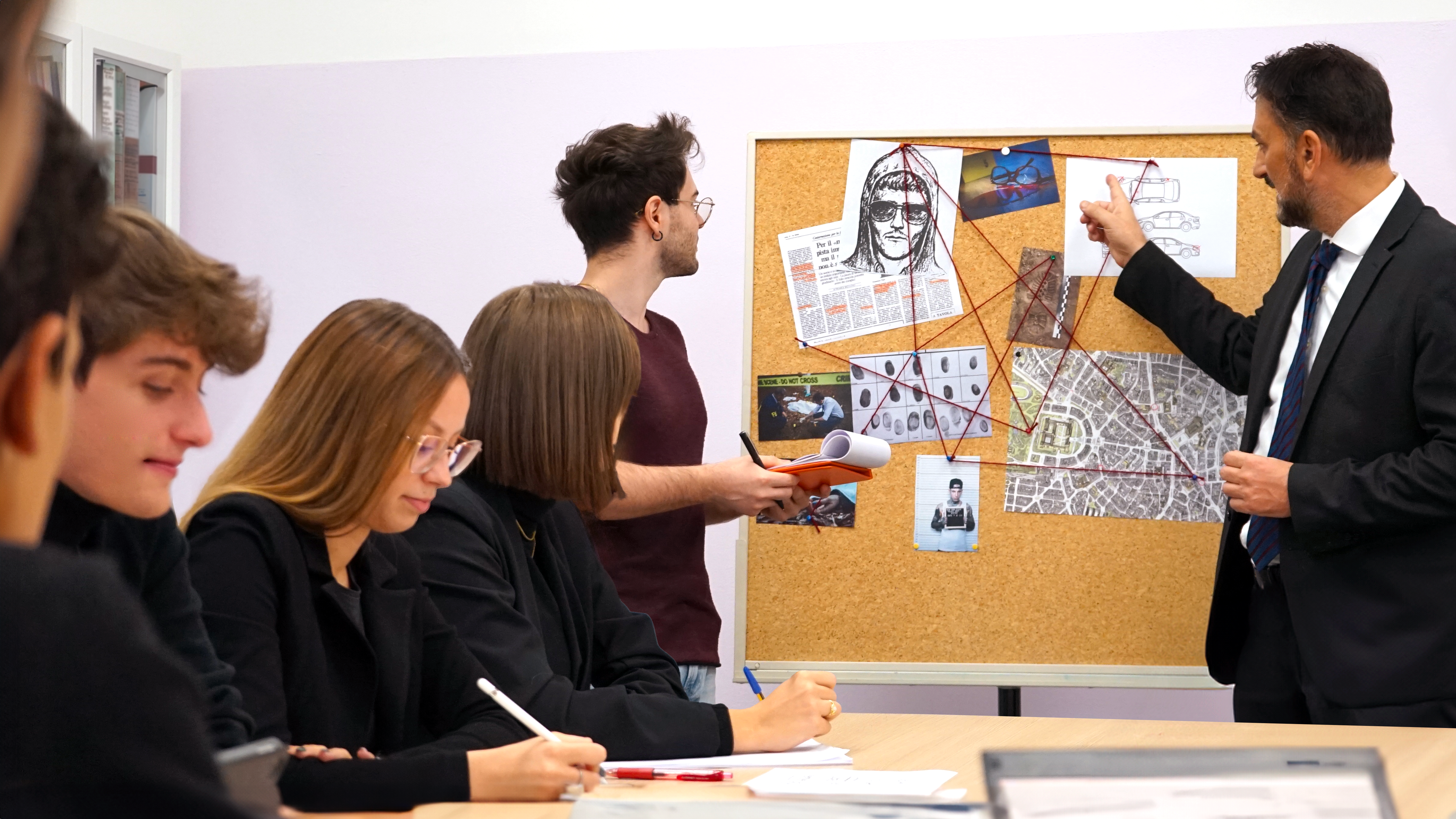
17 Feb
CIELS – Everyone wants to become a criminologist
Gen Z’s passion for Crime drives up demand for this course of study.
Among the possible paths to take is that of combining criminology and foreign languages: not only to corroborate the learning of a forensic vocabulary, but to enter the socio-cultural dimension of the country of reference and thus understand what factors can promote, support, legitimize and condone even conduct that we consider illicit and deviant.
February 2024 – Crime and Generation Z: a growing connection, especially in recent years. Many are increasingly becoming passionate about the world of True Crime, thanks to podcasts and TV programs on the subject that generate great interest, particularly among the younger generations. According to Spotify’s Culture Next 2023 report, the passion for this genre has significantly contributed to the success of podcasts: True Crime-themed audio content has a completion rate of over 80%, and listening to this category has increased by 133% compared to the previous report. TV also witnesses this generational phenomenon: crime-related programs are experiencing a steadily rising viewership among the new generations, who interact through comments on social platforms such as Instagram and X. Netflix also joins the phenomenon, with its report indicating that the original series “The Night Agent,” following the FBI agent Peter Sutherland, is the most-watched, with over 812 million viewing hours.
This phenomenon has led to a growing demand among young people for studies related to criminology, such as specialized degree courses or master’s programs. However, what path is better to undertake? There are actually two branches of criminology: the first, socio-criminological investigative, and the second, clinically defined, which is explored in specializations in the psychological-psychiatric field. Criminology is indeed a multifactorial discipline that draws from various fields—sociological, cultural, clinical, legal—and it is a sector that seeks to understand the dangerousness of individuals, determine deviant behaviors, as well as the factors that, alongside prejudicial contexts, can contribute to the actualization and formalization of violent and criminal self-harming agents.
In Italy, however, there is currently no defined study path to become a criminologist, as it is a specialization. Therefore, one must first obtain a degree in law, psychology, medicine, or sociology, or alternatively, opt for a linguistic path that specifically focuses on criminology.
“From a cultural standpoint, there is an increasing focus on chaos, the spectacularization of disorder, and the fascination with evil: we need to see, know, and are drawn to conflicts because we are interested in understanding people’s reactions to critical events,” comments Simone Borile, Coordinator of the Safety and Social Defense course (Criminology) at CIELS and an expert judge of the surveillance court in Venice. “In Italy, however, unlike in other countries, the role of the criminologist is not yet regulated precisely because it can emerge from various different fields.“
Security and Social Defense: Languages Applied to Criminology
A testament to the growing demand among young people for this particular field is the focus on Security and Social Defense (Criminology) at CIELS, the Higher School of Socio-Cultural Linguistic Mediation affiliated with the Plena Education group, a university-level institution. The program emphasizes the investigative, scientific, and forensic aspects of the field. Starting from a deep literary and scientific knowledge of criminology and victimology, the curriculum progresses to the development of legal, psycho-social, and communicative skills. The goal is to equip students with the ability to understand behaviors with aggressive tendencies and establish contact with these phenomena, fostering an empathetic relationship with the subject to facilitate mediation.
Skills are reinforced through various lab activities covering legal, criminal, and social psychology issues, with the objective of defining criminal profiles. All of this occurs in an innovative context that analyzes trends in cybercrime.
Why foreign languages? The study of languages involves not only learning forensic vocabulary but also entering the socio-cultural dimension of the country of reference. This understanding helps discern the factors that can promote, support, legitimize, and even condone behavior considered illicit and deviant. Linguistic mediation, furthermore, is one of the faculties that has expanded in recent years and is increasingly sought after by students, driven by ongoing globalization where not only markets but also cultures intersect and mutually influence each other. It is increasingly essential to have individuals who can act as intermediaries to enhance economic, professional, and political exchanges, becoming bridges in contexts where cultural peculiarities may seem to clash rather than becoming a source of richness for all.
The license to practice this profession is issued by the prefecture based on a three-year course (with the requirement of a university path in investigative criminology). The forensic language mediator, in addition to the traditional linguistic outlets associated with the translator and interpreter profession, can operate within sensitive circuits related to the investigative, scientific, and forensic world, such as major institutions, law firms, correctional facilities, and organizations working in contexts where individuals are victims of critical events and/or perpetrators of crimes.
The student and future professional are trained in the translation and understanding of criminal phenomena, capable of placing them within international contexts through a systemic, global, and cultural approach. The translation and interpreting activities enable the mediator to enter an innovative market segment potentially rich in professional opportunities. The meticulous study of languages positions the student as an undisputed specialist in the processes of analyzing, understanding, and translating texts and contexts of utmost social importance.




